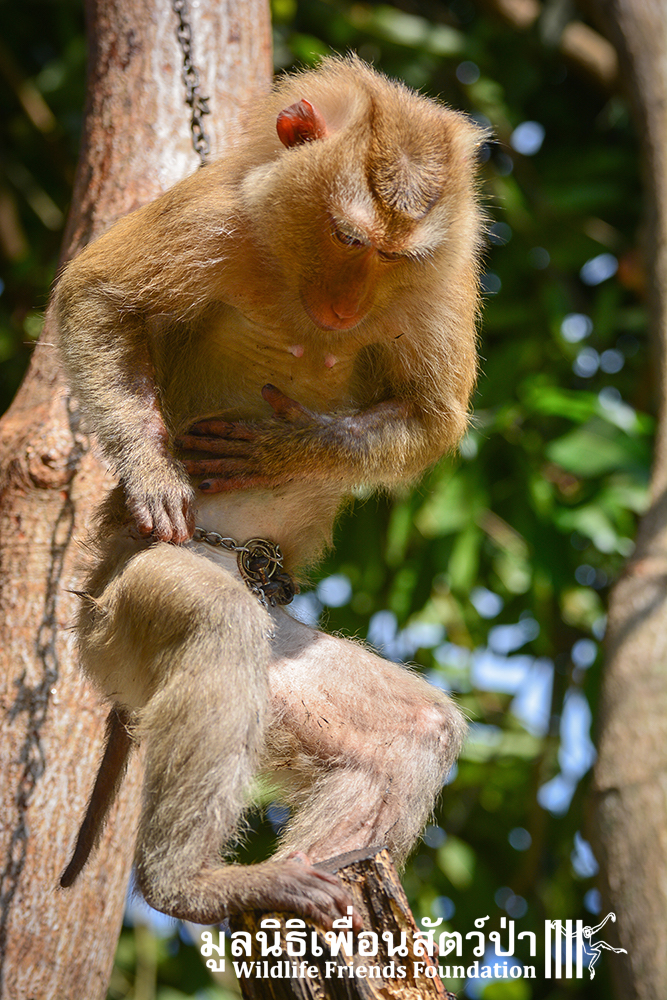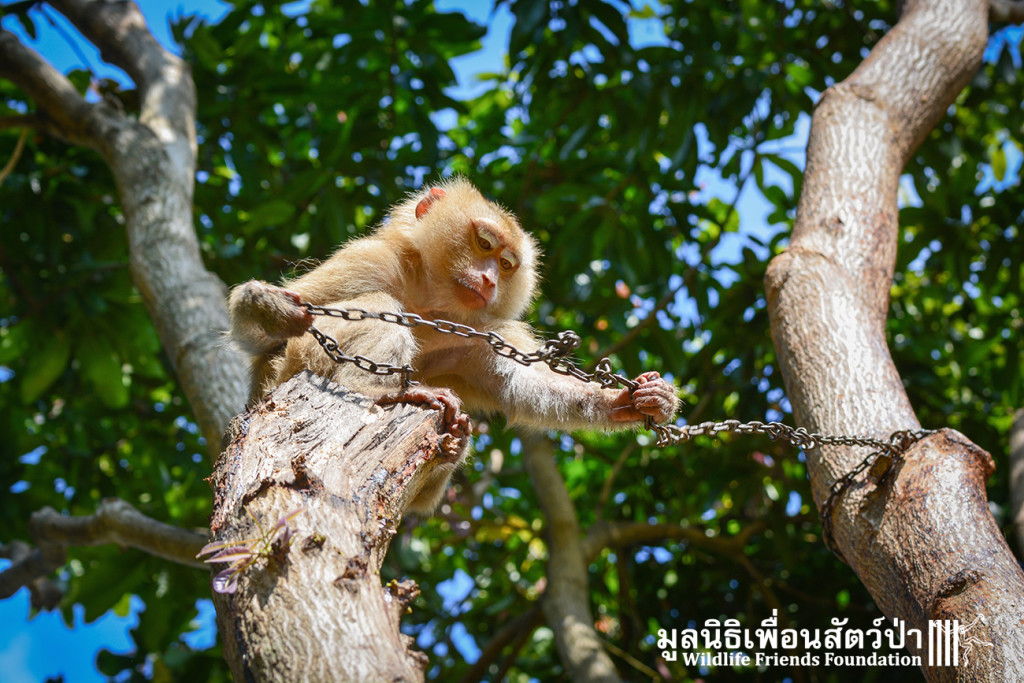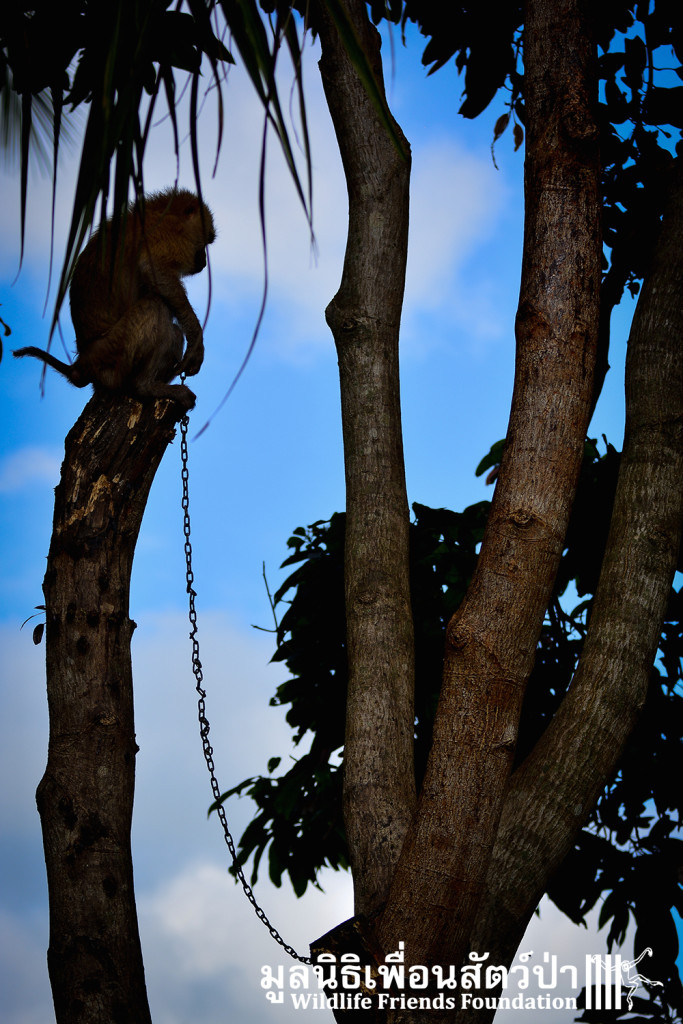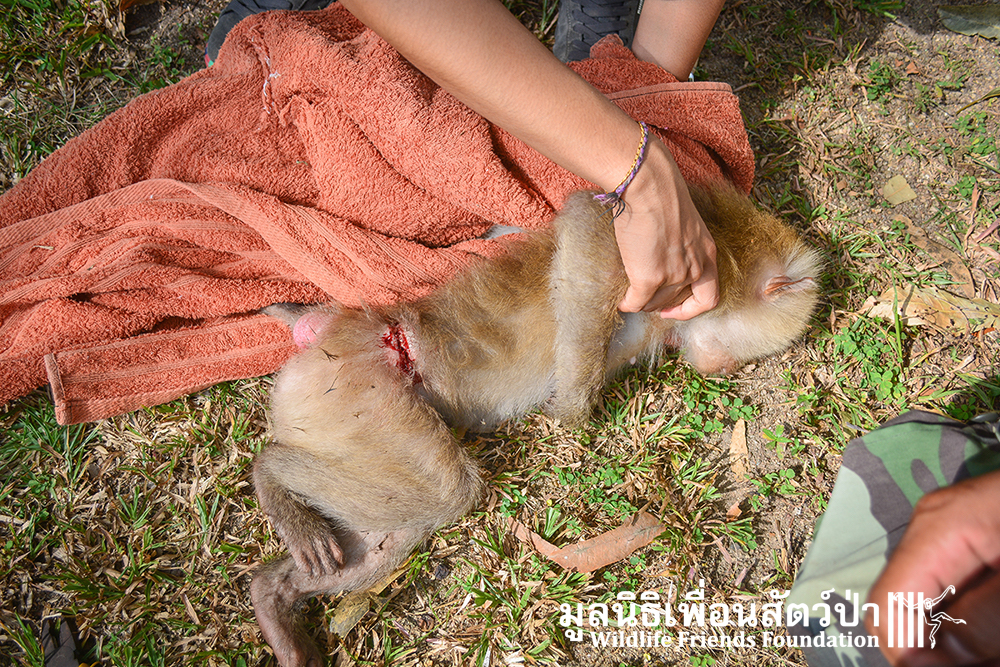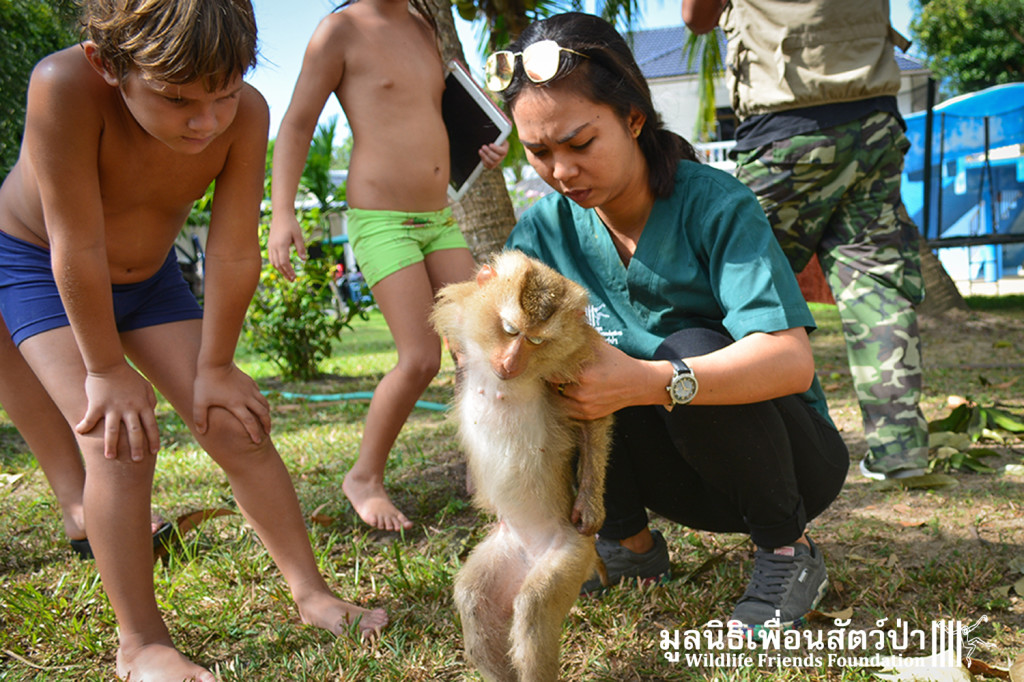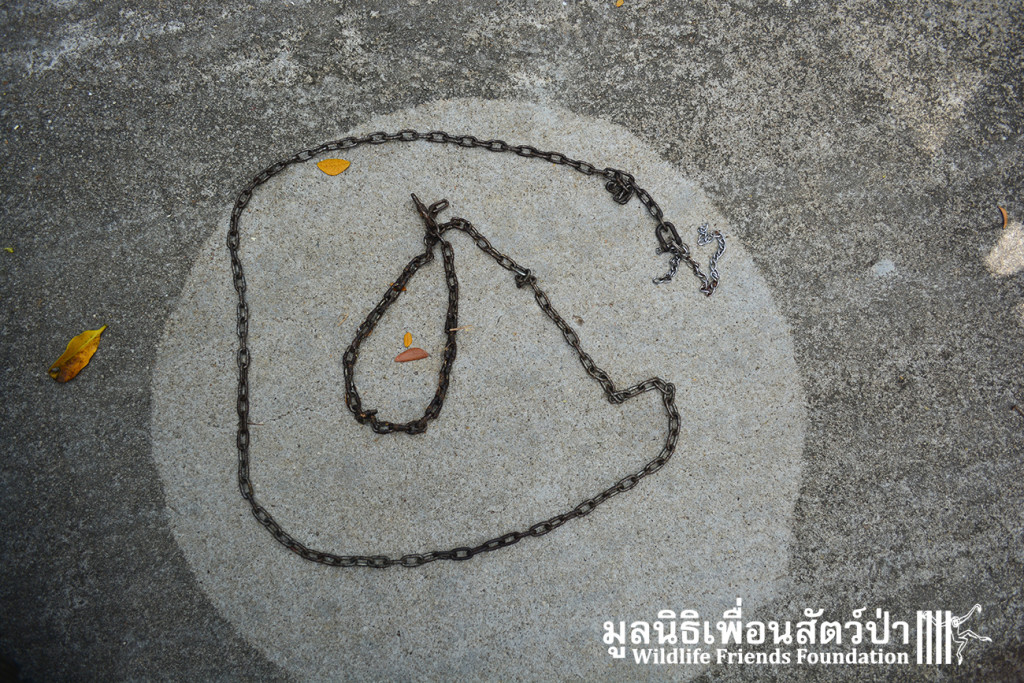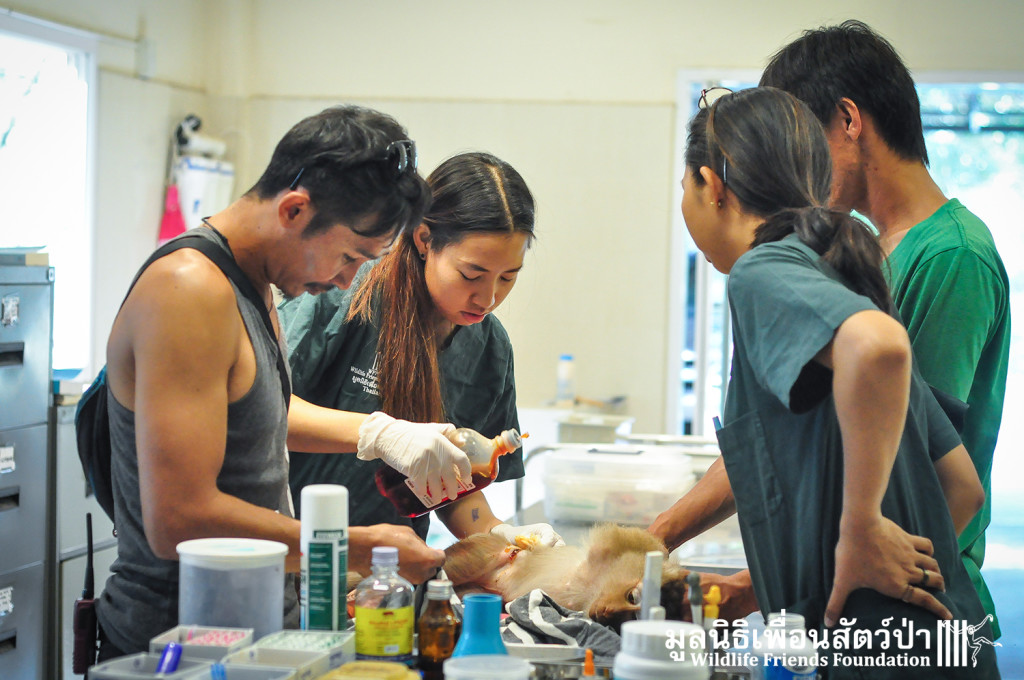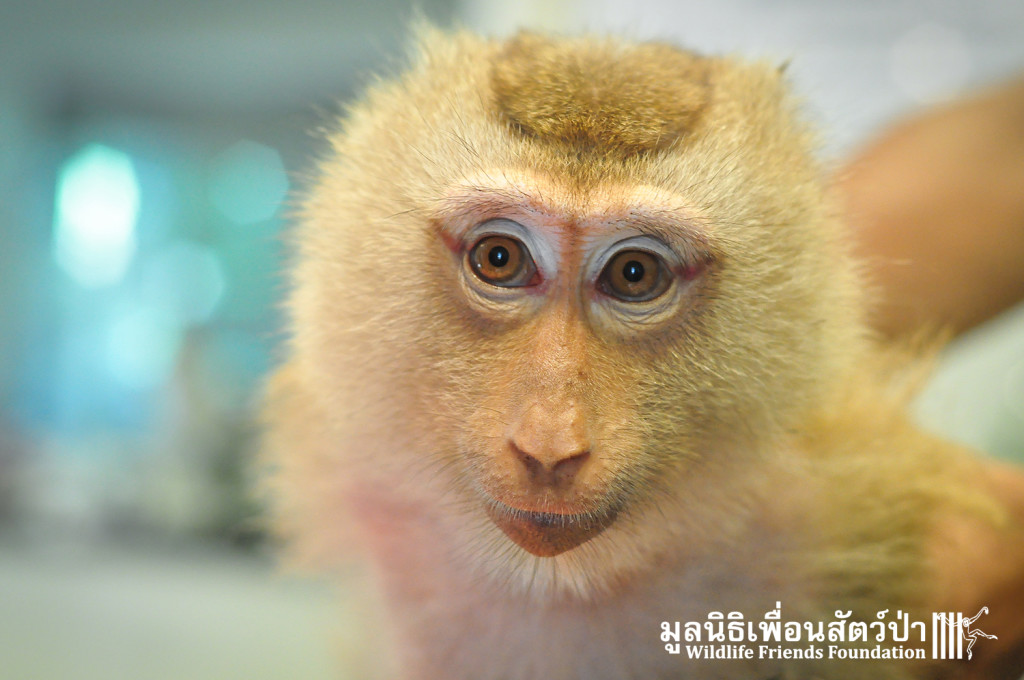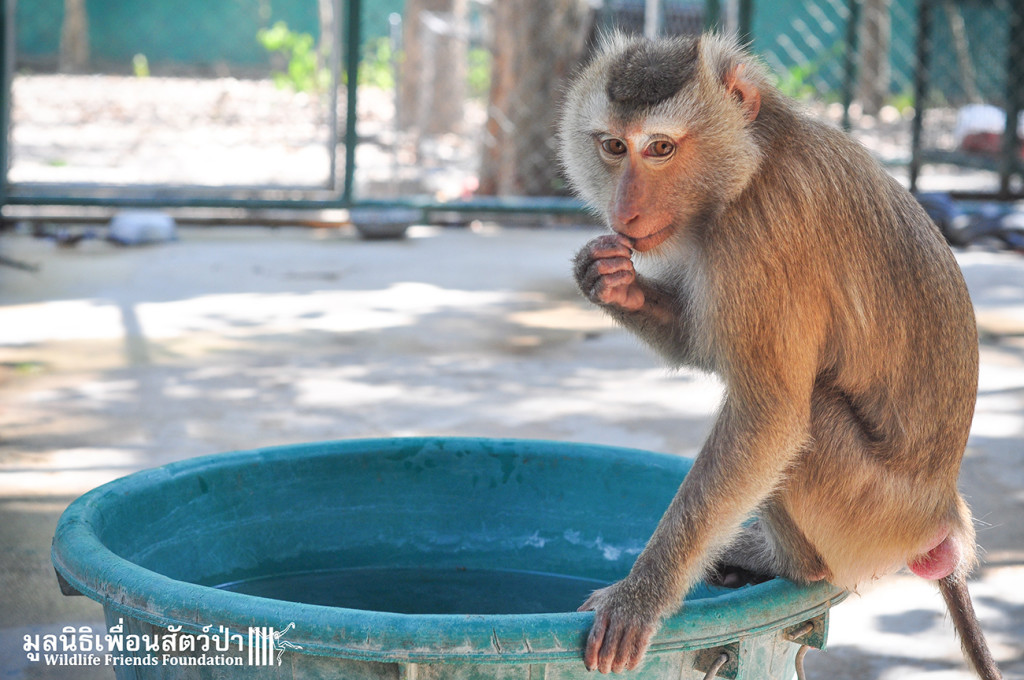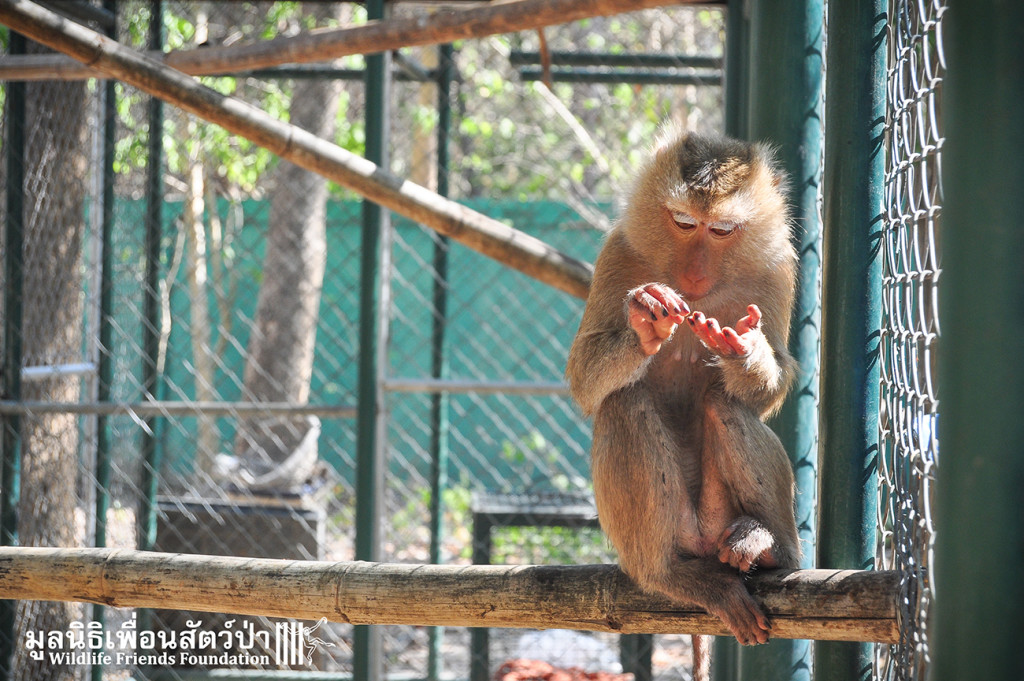A big step forward! An MOU has been signed with the coconut industry and authorities to phase out monkey labour and exploitation in coconut harvesting.
Freedom Becomes her as this Macaque is Removed from Chains
A few days ago the WFFT Wildlife Rescue Team again headed south to one of Thailand’s many islands on a mission to rescue a monkey in desperate need of help. After receiving reports from Philip Brook of the Samui snake and wildlife rescue about a young female northern pig tailed macaque (Macaca leonina) that was in urgent need of medical attention, and in need of refuge after her ‘owners’ were leaving the country. Let us introduce you to ‘Lamai’, she has spent the last 4 years confined to a short chain tethered to a tree within the garden of her ‘owners’. The tight chain had caused deep wounds around her abdomen. It is highly likely that she will have been captured from the wild as a young baby, witnessing the murder of her mother before being sold as a pet. The idea of keeping a monkey as a pet seems to appeal to many people, this is when they are young, small and docile enough to handle. A few months down the line they are no longer receptive to human contact, as their wild instincts become more and more evident, they can no longer be handled like babies. This is when the reality of the often long miserable life in captivity starts, they are either locked away in deplorable conditions, thrown back into the wild – without any prior rehabilitation, or chained up and forgotten about. Luckily this little girl has another chance at life as we were alerted to her plight. The team got to work sedating ‘Lamai’, removing the chain from around her waist, and loading her into the transportation cage ready for the long journey back to the WFFT Wildlife Rescue Centre.
The IUCN Red List of Threatened Species lists the Northern pig-tailed macaque as Vulnerable (VU). Their population has declined by over 30% over the last three generations across its entire range due to several threats, and this decline is predicted to continue at the same rate or higher in the next three generations. These animals are hunted and traded for food, sport and traditional “medicine”, and the live animals as pets. In Thailand, the males of this species are exploited for picking coconuts by the industry. Sometimes, a well-trained macaque is sold for 1,000USD. They are also in demand by resorts and other tourist attractions for inhumane circus style shows.

